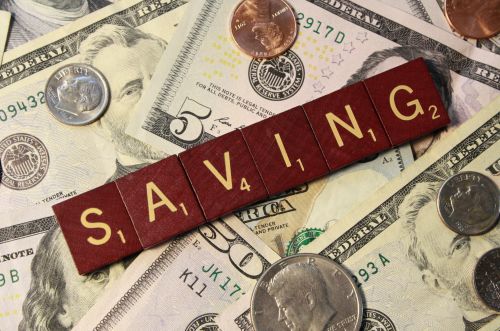

Let’s be honest, saving money doesn’t sound all that exciting. It’s not flashy, it’s not fast, and it doesn’t come with the instant rush you get from spending. But beneath all the noise of crypto charts, stock market swings, and “get rich quick” schemes, something quiet and pretty powerful is happening.
People everywhere are rediscovering one of the oldest, simplest, and most underrated ways to grow wealth: compounding.
And here’s the real twist: it’s not the billionaires or Wall Street wizards leading this charge. It’s everyday people. Regular folks with side hustles, nine-to-fives, or gig jobs who’ve figured out that consistent saving can actually outsmart a lot of financial noise.
The Forgotten Superpower of Compounding
If you’ve ever been told to “start saving early,” this is why. Compounding is what happens when your money starts earning money, and then that money earns money too.
It’s like a snowball rolling down a hill. It starts small, barely noticeable. But give it time, and with every turn, it picks up more snow, growing bigger and faster.
You don’t have to be a math genius to get it. Here’s the idea in plain English: if you deposit $100 and it earns interest, your balance grows. The next time interest is calculated, it’s on that new, slightly larger total. That’s compounding at work. It’s steady, quiet, and incredibly effective.
Most of us underestimate what a little consistency can do. A few dollars a week might seem like nothing, but over the years, especially with compounding, it adds up to something real. Something life-changing.
Small Savers, Big Comeback
There’s a shift happening right now, and it’s one you might not see trending on social media. It’s the slow, steady rise of small savers, people who’ve stopped chasing quick wins and started focusing on lasting growth.
For decades, we’ve been told that building wealth means investing big, taking risks, and thinking like an entrepreneur. And sure, those paths work for some. But for many, the secret isn’t risk—it’s rhythm. It’s the quiet discipline of saving regularly and letting compounding do the heavy lifting.
The rise of digital banking and financial apps has made this easier than ever. You can automate savings, set goals, and watch your balance grow, all from your phone. And for the first time in a long time, people are actually looking forward to checking their savings accounts. They’re tracking their interest, learning about APY, and understanding how even small boosts can make a big difference.
That’s where being aware of your bank interest amount really matters because it’s not about obsessing over every penny; it’s about noticing that your money’s working with you, not just sitting there doing nothing.
The truth? You don’t need thousands of dollars to start seeing results. You just need to start and stay consistent.
Time Always Wins: Why Patience Pays Off
Here’s something worth remembering: when it comes to compounding, time beats timing.
We love the idea of catching “the right moment” to do something, buying a stock, flipping a house, investing in crypto at the dip. But with compounding, the earlier you start, the less you need to worry about perfect timing.
Think about it like this: imagine two friends, Mia and Jordan.
- Mia starts saving $100 a month at 25 and stops at 35.
- Jordan waits until 35 to start, saving the same amount every month until they’re 65.
By retirement, Mia will likely have more money than Jordan—even though she saved for just 10 years, because her money had more time to grow. That’s the beauty of compounding. The longer it works for you, the harder it works.
So when people say, “I’ll start saving when I earn more,” they’re missing the point. Waiting costs more than starting small.
The Emotional Payoff: Confidence, Calm, and Control
Here’s something financial blogs don’t talk about enough: the emotional side of saving.
When you know your money’s quietly growing in the background, it changes how you feel about everything else. You start to feel grounded. Secure. Less anxious about the “what ifs” in life.
There’s a confidence that comes from knowing you can handle an emergency without maxing out a credit card. There’s calm in watching your balance tick upward, even just a little, month after month.
And maybe most importantly, there’s control. In a world that constantly tries to get you to spend more, saving is an act of quiet rebellion. It’s you saying, “I’m thinking ahead. I’ve got this.”
More people, especially younger generations, are waking up to this. Surveys show that Gen Z and millennials are saving more than their parents did at the same age, not because they’re earning more, but because they’re more aware. They understand that building wealth isn’t about luck or luxury. It’s about habits.
Tech Makes It Simple: Automate and Forget
Let’s face it, saving used to be a chore. You’d have to manually transfer money, do math in your head, and remember to check your balance. Not anymore.
Now, you can set up automatic transfers so a portion of your paycheck goes straight to savings. You can round up purchases to the nearest dollar and stash the spare change. You can even get personalized insights from AI-based financial tools that show you how to optimize your money.
We’re living in an era where automation isn’t just convenient, it’s empowering.
Think of it as building a “financial autopilot.” You set your direction, and the system does the flying. The only thing you need to do? Check in occasionally and make small adjustments as your goals evolve.
When you pair automation with compounding, you create a system that works even when you’re not thinking about it. That’s the ultimate financial hack: making progress while you sleep.
How Compounding Builds More Than Money
Compounding doesn’t just grow your account balance. It grows your mindset.
When you see small wins add up, it changes how you approach goals in every area of life. You realize that steady effort beats random bursts. You stop chasing shortcuts and start trusting the process.
That kind of thinking spills over into health, career, relationships, you name it. It’s why compounding is often called the “eighth wonder of the world.” Not because it’s magical, but because it rewards patience like nothing else does.
The trick is not to get discouraged when progress feels slow. Growth starts out invisible, almost boring. But one day you look back and realize those tiny deposits, financial or otherwise, created something you couldn’t have imagined.
The New Age of Saving: Accessibility for Everyone
Here’s the best part: the quiet revolution of compounding isn’t just for the wealthy anymore.
For years, access to higher interest rates and financial education was limited to people with certain income levels or financial advisors. But now? That’s changing fast.
Online banks, fintech apps, and transparent APY calculators have made it easier for anyone to compare rates, open accounts, and understand their money’s potential. What used to be hidden behind jargon is now right there in your pocket.
And that’s huge, because financial literacy isn’t just about knowledge anymore; it’s about access. When the tools are free and the math is clear, saving becomes less intimidating and more empowering.
The Ripple Effect: When Small Savers Shape the Economy
You might think your little savings account doesn’t matter much in the grand scheme of things, but think again.
When millions of small savers start building reserves, it strengthens entire communities. People rely less on debt. They’re better prepared for emergencies. Local economies become more stable.
That’s the quiet revolution at work. It’s not loud or flashy, but it’s powerful. Every small saver adds to the collective wave of financial resilience.
And here’s the kicker: the same patience that builds personal wealth also builds stronger societies. When people have savings, they have freedom—the freedom to leave toxic jobs, support their families, or take smart risks.
That’s what compounding really gives us: not just bigger numbers, but better choices.
A Mindset Worth Keeping
Here’s a question: what if building wealth wasn’t about chasing more, but about mastering what you already have?
That’s what compounding teaches us. It’s not about greed, it’s about growth. It’s about understanding that wealth is built quietly, one small decision at a time.
You don’t need to wait for a “perfect” income or investment opportunity. You just need to start where you are, with what you have, and let time do the rest.
Because in the end, compounding rewards something far rarer than luck or timing: consistency.
The Bottom Line: Quiet Wins the Race
The quiet revolution of compounding isn’t just a financial concept; it’s a movement. It’s a shift back to basics in a world obsessed with shortcuts.
So if you’ve ever felt like saving is too slow, or that your efforts don’t matter, think again. Every deposit is a statement. Every bit of interest earned is proof that small actions compound into something meaningful.
Start small. Stay consistent. Let time do what it does best. And one day, you’ll look at your balance and realize the revolution wasn’t loud at all. It was patient. Persistent. And quietly powerful.


